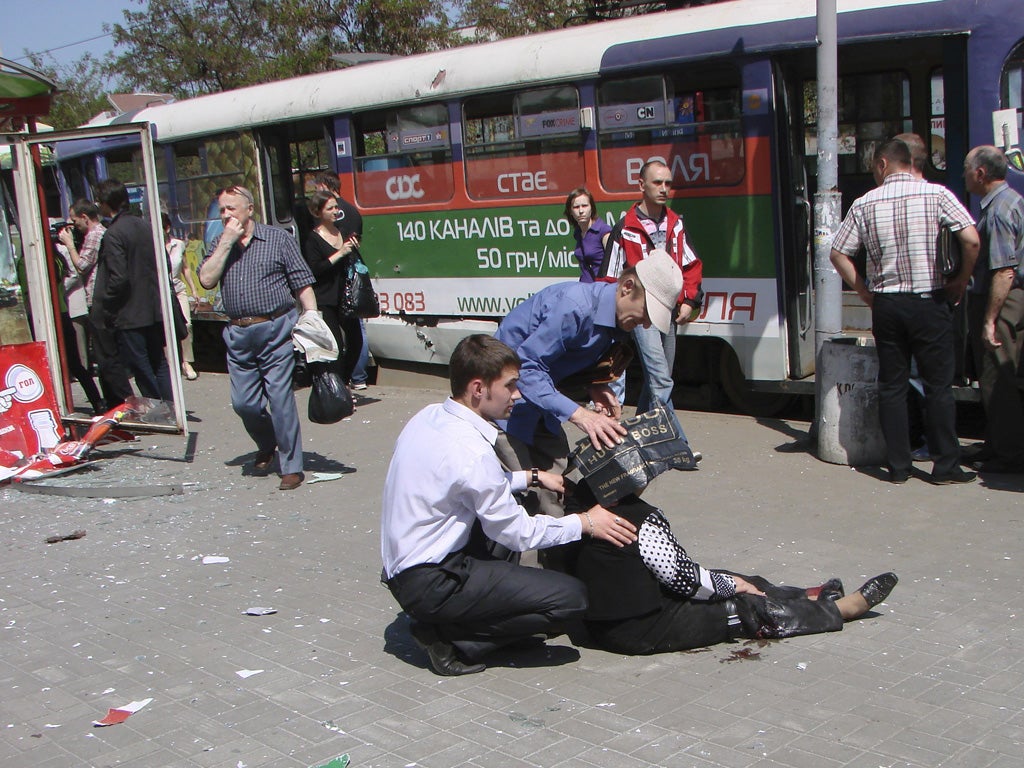'Terrorists' blamed for Ukraine blasts

Four bombs tore through the Ukrainian city of Dnipropetrovsk yesterday, just six weeks before the country is due to co-host the Euro 2012 football championships.
The blasts, which injured 29, struck various points in the city, about 100 miles from Donetsk, the industrial hub where England will play at least two matches during the tournament.
Explosives were left in rubbish bins across the city and went off in the middle of the day. Authorities classified the blasts as "terrorism" while President Viktor Yanukovych said they represented a "challenge to the whole country".
Information about who might be behind the attacks was hard to establish. There were unconfirmed claims police were engaged in a stand-off with a suspected terrorist at a supermarket. Ukraine has little recent history of terrorism, and has no religious or separatist movements that have resorted to violence. The blasts, therefore, come as a shock to a country gearing up to prove it is capable of hosting a major international event.
Some opposition forces in Ukraine loyal to jailed former prime minister, Yulia Tymoshenko, accused the government of being involved in the blasts. "I don't rule out the authorities and law enforcement bodies may be among the organisers of a scenario which involves deflecting the attention of the world and Ukraine from Tymoshenko's case," said Mykola Tomenko, the Deputy Speaker of parliament and a member of Ms Tymoshenko's party. Ms Tymoshenko was a leader of the Orange Revolution and became prime minister in 2007. She narrowly lost a presidential election to Mr Yanukovych in 2010. She was sentenced last year to seven years in jail for abuse of office. She is on hunger strike in protest against alleged abuse by prison guards.
Join our commenting forum
Join thought-provoking conversations, follow other Independent readers and see their replies
Comments
Bookmark popover
Removed from bookmarks